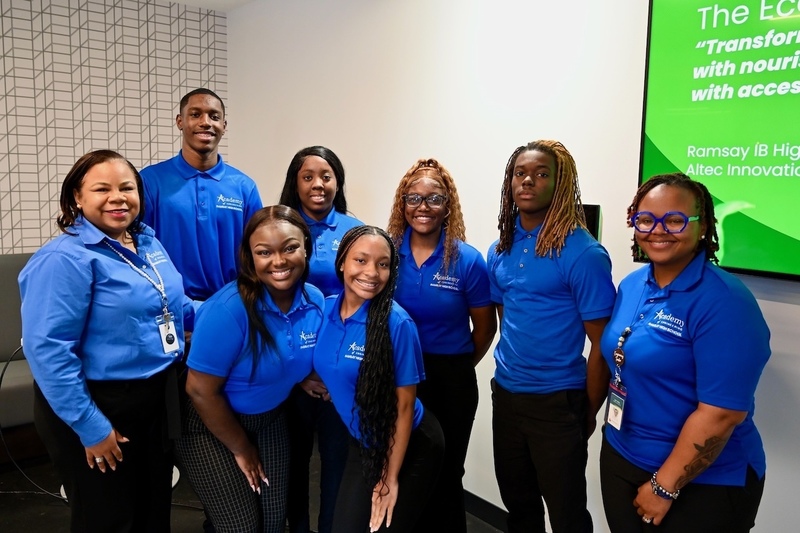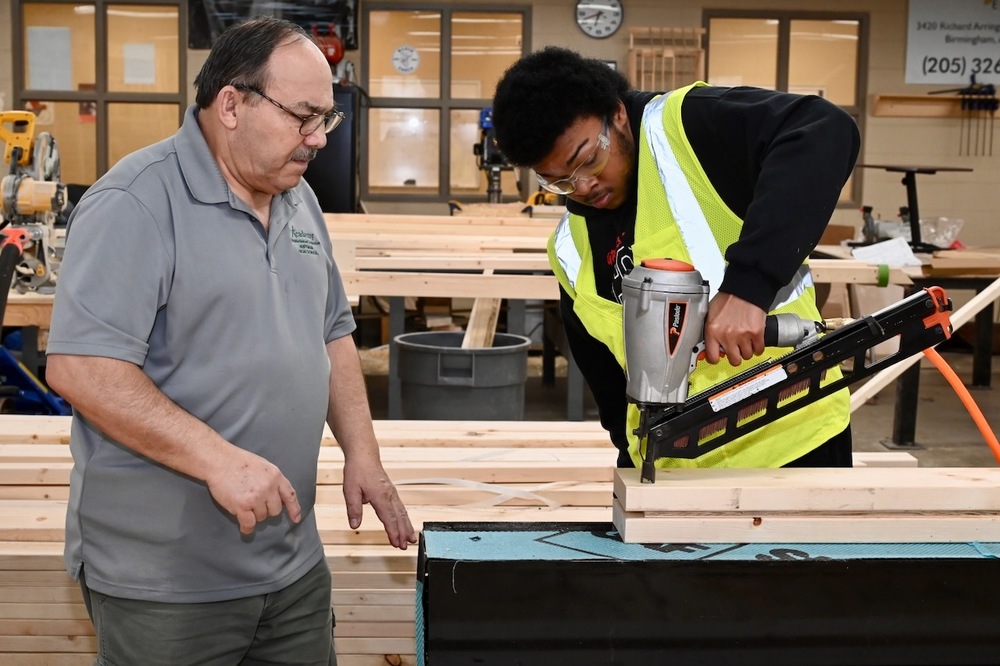The Birmingham City Schools district is on track to change what education looks like for high school students. By the 2027-2028 school year, the vision is for all students to be part of a CTE program through a NAF academy. As a result, they will graduate college, career, and future ready – feeling confident and prepared to take on their next steps after high school.
This bold initiative, championed by Superintendent Dr. Mark A. Sullivan and his team, reflects a districtwide commitment to opportunity, relevance and readiness. It builds on years of groundwork already under way through the district’s growing partnership with NAF, a national education non-profit that helps schools integrate career-focused curricula, career-connected learning experiences, and professional connections into high school programs.
The Career Academy Expansion Plan is aimed at helping “create an environment where all students have the opportunity to feel a part of something,” while “giving students the opportunity to be a part of a learning community,” said Dr. Clarissa Reese, Director of the Department of Post-Secondary Success for Birmingham City Schools.

Each academy functions as a close-knit learning community, sectioned by grade, within the larger high school environment, encouraging students to pursue specialized interests while remaining connected to their peers. Compared with 800 students at the average Birmingham high school, academies have about 25% of that amount, with 50-100 students per grade.
A career academy coordinator at each high school helps ensure students make the most of the experience — and build relationships.
“It really is a family feel,” said Dr. Charles Willis, Instructional Superintendent at Birmingham City Schools, who’s been instrumental in the district’s NAF academies since their inception. “I think our students think of the academy as their home.”

Along with a sense of belonging during what can be a tumultuous life stage, the academies help students gain exposure to potential careers, develop technical skills and participate in real work experiences through internships and partnerships with local employers. In the district, NAF academies are seen as key to a strong future for the Greater Birmingham area, preparing students not only for immediate job opportunities but also for post-secondary education and long-term success.
That success is evident early on, said Willis.
“The experience has been transformational,” he said. “In the way that they actually go about learning, their interactions with their peers, the social skills that have been gained, the opportunities. When you see the kids, they're professional. We’ve seen just so many interpersonal changes.”
From appearance and confidence level to public speaking skills and maturity, Willis called NAF academies “a significant metamorphosis” for teens.
Each academy follows Alabama State Department of Education-approved programs of study, combining core academics with technical depth. Students are encouraged to complete at least three courses in a sequence, ensuring that they gain both foundational knowledge and practical skills relevant to the job market.
Today, the district is home to 14 NAF academies across seven high schools, with more than 1,300 students in pathways such as engineering, finance, health sciences, hospitality and tourism, and information technology. Three of these academies at George Washington Carver High School (G.W. Carver High School) were recently named Katherine Blasik Distinguished Academies, a national NAF recognition that reflects excellence in quality student experience leading to positive student outcomes.
Those accolades bolster Willis’ commitment to the 360-degree learning that career academies offer.
“I don't think there's a better way for a child to learn than through project-based learning,” he said, adding that it allows educators to truly see what students are capable of, while polishing their critical thinking skills.
There’s more to come. Six more NAF academies will launch next school year, and the district’s model will ensure that all students will be a part of a NAF academy, from ninth through 12th grade.
The benefits are clearly visible in the community. Alumni such as Menyorn Beachem-Whitby – a former culinary arts student at P.D. Jackson-Olin High School who now teaches culinary arts – and Jefferson County District Attorney Danny Carr, a former welding student at Jackson-Olin, demonstrate the real-world impact of these programs.
“We have very strong alumni groups,” said Willis. “It's a culture where they come back and give back.”
By fostering connections between classrooms and community, the district is ensuring that students graduate ready to shape their city’s future.
“We want to make sure that when students graduate on Friday, they have an idea of what they're going to do on Monday,” said Reese. “Whether that be going to college, going into a career or going into the military, we want them to know — and we feel strongly — that being a part of these communities will help them make those informed decisions.”

